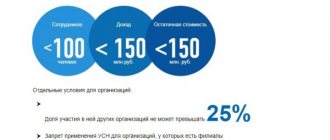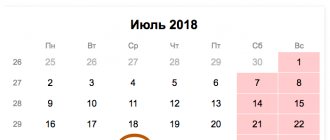Who grants the right to property tax exemption?
Which companies are not payers of corporate property tax according to federal law?
Property tax: preferential taxation in the constituent entities of the Russian Federation
Who is exempt from property tax according to regional legislation?
Is there an exemption from property tax for individual entrepreneurs and LLCs under special regimes?
What categories of individuals do not pay property tax?
Results
Who grants the right to property tax exemption?
Some categories of taxpayers are entitled to tax benefits. This benefit allows you to pay only part of the tax or exempts you from it completely (Clause 1, Article 56 of the Tax Code of the Russian Federation).
Legislatively, the rights to benefits and tax exemptions are enshrined in the Tax Code, and are also established by acts of the constituent entities of the Russian Federation (Article 56, Article 372 of the Tax Code of the Russian Federation).
Conventionally, property tax benefits can be divided into 2 groups:
- the benefits contained in the provisions of the Tax Code are valid in all constituent entities of the Russian Federation where property tax is established;
- benefits introduced by local authorities and valid only in the territory of the corresponding region (municipality).
The benefits established by the Tax Code are valid throughout Russia and do not require additional approval in the laws of the constituent entities of the Russian Federation (decision of the Supreme Court of the Russian Federation dated July 5, 2006 No. 74-G06-11).
For information on how benefits are coded in tax reporting, read the article “Tax benefit codes for property tax - 2010257” .
https://youtu.be/Xe5XtbyQ8WE
What taxes are required to be paid?
According to the requirements of the Tax Code, citizens are required to pay:
- income tax on income received;
- property in the presence of real estate;
- land, if you have part of the land at your disposal;
- transport.
Any of the listed taxes is required to be paid if the citizen owns property and is an adult able-bodied citizen.
But there are certain circumstances, as well as preferential categories of citizens who can avoid paying annual tax.
Grounds for release
In 2020, the grounds for tax exemption have changed slightly and can now be used by citizens subject to the following standards.
Who and when is exempt from paying various groups of taxes:
Income tax
Not only residents of the country, but also non-residents can now avoid paying personal income tax when selling property. When selling property whose ownership lasts for 3 years, the owner who resides in Russia for more than 183 days a year is not required to pay tax.
Starting from 2020, non-residents of the country also have the right not to pay tax; in addition, the following are exempt from paying income tax when selling property:
- property previously used for business purposes, if the statute of limitations has expired;
- increasing the amount of deduction by local authorities if a citizen, as a result of the sale of property, made a donation to the cultural assets of the city;
- judges are exempt from paying personal income tax if they received a lump sum payment for the construction of real estate or its improvement or acquisition;
- home-based workers whose responsibilities include cleaning homes, caring for children and elderly citizens, as well as tutors this year can not only work without registering as an individual entrepreneur solely upon notification of the tax office, but are also exempt from paying tax;
- The delivery of waste paper is also not subject to income tax.
It should be remembered that in the Russian Federation the following are exempt from personal income tax:
- pensioners, unemployed citizens receiving social benefits, students;
- women on maternity leave, minor children;
- citizens receiving unofficial income, which is illegal.
What are the benefits for land and real estate taxes? Photo: kremlinpress.com
Real estate and land tax
Starting from 2020, citizens of pre-retirement age can take advantage of the tax non-payment benefit. According to the norms, these are employees who have another 5 years left to work.
They received this benefit as a result of the Pension Reform, due to which the time for them to retire a little further.
Now they can use the tax benefit on:
- apartment or part thereof;
- House;
- outbuilding;
- garage or parking space;
- room;
- premises for commercial purposes;
- land up to 600 sq. meters.
At the same time, citizens will be informed about the availability of benefits before receiving a notification.
In the article Dachas for pensioners are exempt from land tax, you will learn how pensioners can apply for an exemption for their dacha plots.
The benefit does not apply to other objects; it should also be remembered that if there are several objects of the same category, only one of your choice is exempt from tax.
Important: if the property, according to the cadastral value, is from 300,000 rubles, then there will be no tax exemption, since this is elite property.
Transport
In this case, the right to determine beneficiaries is given to local governments. In some regions, pre-retirement pensioners who have turned 55 and 60 years old, respectively, for women and men, are completely exempt from the benefit. In addition, the car must have an engine with a capacity of up to 150 horsepower.
Federal beneficiaries, the list of which is approved by regulatory documents, are also exempt from paying tax. Moreover, if there are several cars, the benefit applies to only one.
Property tax: preferential taxation in the constituent entities of the Russian Federation
The powers of local governments include the independent establishment of benefits. According to the Tax Code, property tax benefits are not individual in nature and are not established depending on the form of ownership of the organization (Article 3, 56 of the Tax Code of the Russian Federation).
In accordance with the ruling of the Supreme Court of the Russian Federation dated 06/07/2006 No. 59-G06-9, it is impossible to establish a property tax benefit if its use depends on the share of foreign participation in the authorized capital of the taxpayer, since there is a dependence on the place of origin of the capital, which is contrary to Russian tax legislation .
The legislation of the constituent entities of the Russian Federation cannot contradict the Tax Code; accordingly, property tax benefits cannot be established as a change in the elements of property tax (Chapter 30 of the Tax Code of the Russian Federation).
Legislative bodies of constituent entities of the Russian Federation can create additional conditions allowing the use of benefits.
An example is the Moscow region, where taxpayers, when using benefits, are required to provide a calculation of the amount of released funds at the end of the tax period and a report on their use. This provision is enshrined in paragraph 3 of Art. 4 of the Law of the Moscow Region “On Preferential Taxation...” dated November 24, 2004 No. 151/2004-OZ.
Who is exempt from property tax according to regional legislation?
Let's look at examples of property benefits for organizations that operate in the constituent entities of the Russian Federation:
1. Certain categories of taxpayers are exempt from taxation of all owned property.
This benefit is presented in St. Petersburg. Organizations whose main activity is the manufacture of special equipment to support the life and rehabilitation of disabled people are exempt from tax (subclause 1, clause 1, article 4.1 of the St. Petersburg Law “On Organizational Property Tax” dated November 26, 2003 No. 684-96).
In Krasnoyarsk, a similar benefit is provided to organizations engaged in the production of primary aluminum in the region in relation to newly created or acquired property accepted for accounting as fixed assets after 2012 (sub-clause “t”, paragraph 3, article 2 of the law of the Krasnoyarsk Territory “On Tax” on the property of organizations" dated November 8, 2007 No. 3-674).
2. When using property for the intended purpose, it is permissible to use benefits.
For example, Moscow adopted the Law “On Organizational Property Tax” dated November 5, 2003 No. 64, which exempts public railway transport organizations from paying property tax in relation to movable and immovable property used for transportation along the Small Ring of the Moscow Railway (sub. 28 paragraph 1 article 4). The list of such property is established by the Moscow government.
3. Taxpayers are exempt from taxation in relation to a certain type of property.
This benefit, for example, was introduced for property used to carry out activities to organize recreation and health improvement for children under 18 years of age in the Leningrad Region (subparagraph “e”, paragraph 1, Article 3_1 of the Law of the Leningrad Region “On Organizational Property Tax” dated November 25. 2003 No. 98-oz) and the Khabarovsk Territory (clause 12 of Article 3 of the Law of the Khabarovsk Territory “On regional taxes and tax benefits...” dated November 10, 2005 No. 308). In the latter case, it is applicable provided that in other periods the property falling under it is under conservation.
In the Vladimir region, a benefit has been established for public roads of regional and intermunicipal importance (clause 2 of article 2.1 of the law of the Vladimir region “On the property tax of organizations” dated November 12, 2003 No. 110-OZ).
4. Certain categories of taxpayers have the right to a reduction in the amount of tax.
Examples include:
- Moscow region, where organizations that are members of religious associations are allowed to pay 50% of the calculated tax amount (clause 2 of article 14 of the law of the Moscow region “On preferential taxation...” dated November 24, 2004 No. 151/2004-OZ);
- Chelyabinsk region in terms of charitable activities. The amount of the benefit is also 50% (Clause 2, Article 3 of the Law of the Chelyabinsk Region “On Organizational Property Tax” dated November 27, 2003 No. 189-ZO).
In accordance with the Tax Code, in the constituent entities of the Russian Federation it is permissible to use reduced property tax rates (clause 2 of Article 372, clause 2 of Article 380 of the Tax Code of the Russian Federation). However, the reduced rate cannot be considered a benefit.
The use of tax benefits is the right of the taxpayer, therefore it is necessary to have undeniable grounds for the use of this right. Tax authorities may request from the taxpayer supporting and supporting documents for the application of property benefits (Articles 88, 89, 93 of the Tax Code of the Russian Federation).
To find out whether documents will be requested when applying reduced rates, read the material “A differentiated tax rate is not a benefit.”
Is there an exemption from property tax for individual entrepreneurs and LLCs under special regimes?
Yes, it exists. Among those who are exempt from property tax are organizations and individual entrepreneurs with special regimes. In this case, the following conditions must be met:
| No. | Condition | IP | Organization |
| 1 | The tax regime chosen is | STS, UST, UTII or patent (only for individual entrepreneurs) | |
| 2 | Property in use | As part of business activities | Ownership of the company |
| 3 | Special conditions | There are available documents confirming the use of property in work (lease agreement, agreement with suppliers, payment documents, etc.) | It is on the balance sheet of the enterprise |
However, we note that starting from 01/01/2015, individual entrepreneurs and companies in special regimes must pay tax on the real estate they own for a specific purpose based on its cadastral value (Article 378.2 of the Tax Code of the Russian Federation).
What benefits apply and who sets them?
The Tax Code of the Russian Federation devotes two chapters to property tax: Ch. 30 (for legal entities) and Ch. 32 (for citizens), which also establish tax benefits. The benefit can be expressed in full or partial exemption from tax (Article 56, paragraph 1 of the Tax Code of the Russian Federation).
Tax exemption is possible both at the federal and regional levels:
- for individuals - according to Art. 399, 407 of the Tax Code of the Russian Federation and legislative acts of local self-government;
- for legal entities - Art. 372, 381 of the Tax Code of the Russian Federation and legislative acts of the constituent entities of the Russian Federation.
On a note! An extensive regulatory framework for the property tax of constituent entities of the Russian Federation, and its benefits, is contained on the website of the tax service. The service is called “Reference information on property tax rates and benefits.” It allows you to search by constituent entities of the Russian Federation, municipalities, as well as by the details of a regulatory act, if they are known.
A special procedure for paying property tax and exemption from payment has been established for organizations and individual entrepreneurs using special regimes. It plays a role here whether the property belongs to that specified in Art. 378.2 Tax Code of the Russian Federation.
What categories of individuals do not pay property tax?
Since 2020, Chapter 32 of the Tax Code has come into force, according to which property tax for individuals is generally calculated based on cadastral value.
Tax payers are owners of residential real estate, garages, parking spaces, etc.
Find out how personal property tax is calculated here .
According to Art. 407 of the Tax Code of the Russian Federation the following categories of individuals are not payers of property tax:
- Heroes of the USSR and the Russian Federation;
- participants in the Great Patriotic War and other military operations;
- disabled people of groups I or II, as well as disabled people since childhood;
- military personnel;
- family members of military personnel in the event of loss of a breadwinner;
- pensioners;
- persons exposed to radiation as a result of nuclear tests at the Semipalatinsk test site, the disaster at the Chernobyl nuclear power plant, as well as at the Mayak production association, etc.
Also exempt from paying tax are owners of outbuildings located within the boundaries of dacha farms, gardening, individual housing construction, the area of which does not exceed 50 square meters.
Individuals entitled to tax benefits should submit a corresponding application and documents confirming their right to the benefit to the Federal Tax Service at their place of residence.
A tax benefit is provided to an individual in relation to 1 property. The taxpayer should be notified of his decision to select a preferential asset no later than November 1 of the year that is the tax period. If notification of the selected property is not provided, the benefit is provided in relation to the asset with the maximum amount of calculated tax.
Exemption of citizens from property tax: legal norms
Like organizations, individuals also pay a property tax on real estate assets. However, the tax transferred by citizens from their own property is considered a mandatory payment (fee) at the local level. Paragraph 2 of paragraph 2 of Article 399 of the Tax Code stipulates that preferences for this tax can be established not only by general federal regulations, but also by legal acts of the relevant municipalities.
Reducing the tax base
In order to partially or completely avoid paying a property tax, an individual can use deductions when determining the tax base for this payment. This possibility is stipulated by paragraphs 3-6 of Article 403 of the Tax Code. When calculating the tax base, a citizen has the right to reduce the cadastral value of a real estate property of a particular type by the following amounts, also assessed at the cadastral value:
- 20 square meters - for part of a residential building or an entire apartment;
- 10 square meters – for part of an apartment or an entire room;
- 50 square meters - for an entire residential building;
- 1 million rubles – for a single real estate complex, including at least one residential building.
Clause 6.1 of Article 403 of the Tax Code stipulates an additional reduction (deduction) of the tax base for one real estate asset of a certain type. This deduction is 5-7 square meters per each minor child. It can be used by a citizen who has at least 3 such children.
Who has the right not to pay local property tax?
Certain categories of citizens may not transfer the property tax for one real estate asset of each type. The following groups of individuals can use this preference (clause 1 of Article 407 of the Tax Code):
- Heroes of the Russian Federation;
- Heroes of the USSR;
- holders of the Order of Glory of three degrees;
- disabled children;
- citizens who have had disabilities since childhood;
- persons with disabilities (groups 1, 2);
- participants of the Second World War and other military operations (military operations) listed in subparagraphs 4-5 of paragraph 1 of Article 407 of the Tax Code;
- people affected by radiation due to nuclear disasters, accidents and tests (subparagraphs 6 and 8 of paragraph 1 of Article 407 of the Tax Code);
- military personnel, as well as individuals who left the army for valid reasons (health status, age limit, organizational and staffing measures), having at least 20 years of total military service;
- family members of deceased (dead) military personnel;
- age pensioners;
- citizens with the status of an internationalist warrior;
- people with radiation diseases, as well as individuals who have become disabled from working with nuclear installations;
- spouses and parents of citizens who died while performing military or other public service;
- this tax is not charged on premises professionally used by individuals for creative activities;
- Outbuildings (maximum 50 square meters) located on land used for its intended purpose are exempt from property taxes.
The procedure for obtaining benefits by individuals
The procedure for providing property tax benefits for individuals is determined by paragraphs 6-7 of Article 407 of the Tax Code. An application for a benefit (preference) is submitted, supporting documents are attached (the procedure for filling out the application is defined in Appendix No. 2 to the order of the Federal Tax Service of Russia dated November 14, 2017 No. ММВ-7-21 / [ email protected] ).
If such an application has not been sent, the Federal Tax Service independently assigns this benefit to a recipient of a certain category. In this case, the applicant personally selects the asset that he would like to be exempt from this tax. The deadline for the applicant to submit the proper notice is December 31 of the tax year.
If you have any questions, you can ask them free of charge to the company’s lawyers in the form provided below. An answer from a competent specialist will help you make the right decision.
Results
Benefits for corporate property tax are established by the Tax Code and can also be introduced at the regional level. The right to a benefit must be documented. Persons exempt from property tax include special regime residents, for whom, starting from 2020, the obligation to pay this tax on real estate for a certain purpose has been introduced with a tax base in the form of cadastral value. There are also benefits for property taxes paid by individuals.
Sources:
- Tax Code of the Russian Federation
- Decree of the Government of the Russian Federation dated February 18, 2004 No. 90
You can find more complete information on the topic in ConsultantPlus. Full and free access to the system for 2 days.
Calculation of taxes based on cadastral value: nuances
This scheme began to be applied in 2020. The price of the property according to the cadastre is the basis on which all taxes related to real estate are calculated from now on. The indicator differs in that it is close to the market level. But the tax amount is higher compared to previous periods.
Lawmakers are considering applying a transition period in connection with this scheme. Then the tax burden will not increase too sharply and strongly. The first three years require the use of reduction factors:
- 0,2.
- 0,4.
- 0,6.
When the fourth year comes, they plan to abandon the reduction coefficients completely.
Article 408 of the Tax Code of the Russian Federation talks in detail about how the calculation is carried out. To determine the result, you need to multiply the difference between taxes based on inventory and cadastral values by the reduction factor. The result is then added to the fees based on inventory prices.











